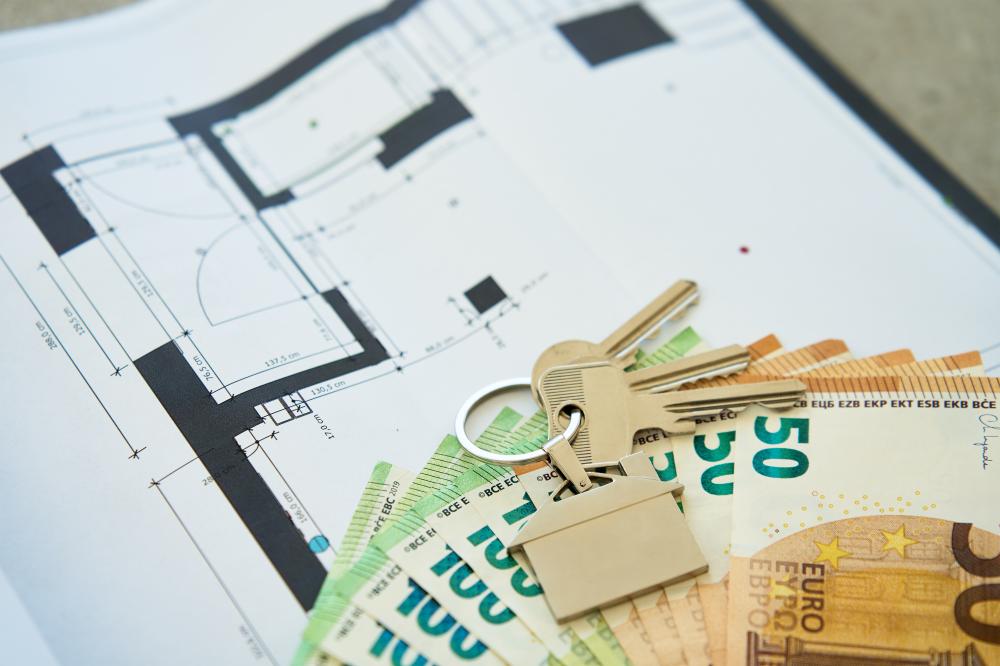
Exploring the Nigerian Real Estate Market
The real estate sector in Nigeria is thriving, offering a diverse array of opportunities and challenges. With the urban population steadily increasing, real estate investment nigeria has become a hot topic among investors, both locally and internationally. To navigate this complex market, understanding the regional characteristics and economic factors is crucial. The cities of Lagos, Abuja, and Port Harcourt stand out not only for their population density but for their growing infrastructure developments and investment returns.
As a professional with 20 years of experience in the industry, Egomili Interiors has witnessed the transformation of these urban jewels. With investments ranging from commercial real estate to residential properties, there is potential for significant returns. However, market volatility and regulatory hurdles should not be overlooked. The Nigerian government’s initiatives to stimulate the housing sector–such as affordable housing schemes and public-private partnerships–also play a pivotal role in shaping investment strategies.
The sector’s growth is further sustained by the burgeoning middle class, which fuels demand for housing and commercial spaces. Despite these opportunities, potential investors should be wary of political instability and security issues, which can affect property values. Equipping oneself with local knowledge and leveraging expert services is advantageous when diving into real estate investment nigeria.
Investment Strategies in Nigerian Real Estate
Navigating real estate investment nigeria successfully requires strategic planning and market insights. One predominant strategy is the buy-to-let model, where investors purchase properties and lease them out to generate steady rental income. This approach is particularly appealing in urban centers with high rental demand.
Another avenue is property flipping, where investors buy undervalued properties, renovate them, and sell for a profit. While this can be lucrative, it requires a keen understanding of market trends and renovation costs. Alternatively, joint ventures have become an exciting prospect for many. By pooling resources with other investors, one can mitigate risks and expand investment portfolios.
For those new to the scene, starting with real estate investment trusts (REITs) can be a safer entry point. These trusts allow individuals to invest in real estate without directly owning property, providing diversification and liquidity. Whichever approach is chosen, a thorough due diligence process is imperative to ensure a successful venture in the real estate investment nigeria.
What Are the Risks and Challenges?
Embarking on real estate investment nigeria presents its share of risks and challenges. Key among these are regulatory hurdles and land ownership disputes. The Nigerian property market is notorious for its bureaucratic procedures, which can delay transactions. Moreover, due to the lack of a robust land registry system, fraudulent transactions and ownership conflicts are prevalent.
Economic factors such as inflation and fluctuating exchange rates also pose significant challenges. These can influence construction costs and property valuations, impacting investors’ returns. Additionally, infrastructural deficits in some regions can affect property desirability and overall market performance.
Security concerns, particularly in the northern regions, add another layer of risk. Investors are advised to conduct market assessments and engage local experts for logistical support and insights. As I’ve learned through years in the field, a cautious yet proactive approach can help navigate these hurdles in real estate investment nigeria.
Why Should You Invest in Nigeria Now?
Nigeria’s rapid urbanization and population growth are compelling reasons to consider real estate investment nigeria. As the country continues to develop its infrastructure, opportunities for high returns are ripe. Moreover, government initiatives aimed at reducing housing deficits have created growth potential in both residential and commercial sectors.
Technological advancements are reshaping the market, with digital platforms simplifying property listing and management. Additionally, the country’s young population is increasing demand for innovative residential solutions, from smart homes to co-living spaces. Investors can capitalize on these trends to secure high-yield portfolios.
With the Nigerian diaspora increasingly interested in investing back home, there is also potential in targeting this market segment. Leveraging connections and culturally relevant marketing can attract foreign investment, adding to the vibrancy of real estate investment nigeria. At Egomili Interiors, we’ve found success in blending local expertise with modern marketing to harness these opportunities.
How Do You Start Investing in Nigerian Real Estate?
Starting your venture in real estate investment nigeria requires careful planning and strategic execution. Here’s a simple roadmap:
- Market Research: Identify areas with growth potential and assess competitive dynamics.
- Financial Planning: Determine your budget and financing options. Consider working with local banks familiar with real estate lending.
- Engage Professionals: Collaborate with trusted agents and property managers who understand the local market intricacies.
- Legal Due Diligence: Ensure all documents are verified and legitimate to avoid land disputes and legal hassles.
- Risk Management: Factor in potential political and economic instability and have contingency plans in place.
These steps provide a structured approach to navigating real estate investment nigeria successfully. At Egomili Interiors, we’ve guided numerous clients through this process, ensuring seamless transactions and optimal returns.

Is real estate a good investment in Nigeria?
Investing in real estate in Nigeria can indeed be a rewarding venture, primarily due to the country’s rapid urbanization and growing population, particularly in cities like Lagos, Abuja, and Port Harcourt. These locations offer significant potential for appreciation in property value and rental income. At Egomili Interiors, we’ve seen our clients achieve substantial returns by capitalizing on strategic locations that are witnessing infrastructure development. However, it’s essential to be mindful of regulatory challenges and ensure thorough due diligence. For instance, one of our clients leveraged expert help to navigate the local regulations successfully, resulting in a smooth transaction. Would you consider the potential risks worth the opportunity for growth?
What is the most profitable investment in Nigeria?
Real estate stands out as one of the most lucrative investment opportunities in Nigeria. The real estate sector, particularly in urban areas, offers diversification options like residential and commercial properties. Investment models like the buy-to-let or property flipping have shown great success. For example, an investor working with Egomili Interiors recently converted an old estate into a thriving commercial space, increasing its value substantially. The profitability often depends on strategic location selection and timing. Are you ready to explore these diverse opportunities in real estate?
Can a foreigner invest in real estate in Nigeria?
Yes, foreigners can certainly invest in real estate in Nigeria. The Nigerian government allows foreign investors to purchase properties, subject to certain regulations. Engaging with local experts, like Egomili Interiors, can provide valuable insights into the market’s legal landscape. We’ve guided numerous international investors by offering comprehensive support from property identification to final acquisition. However, it’s crucial for foreign investors to understand local market dynamics and legal requirements fully to ensure a secure investment. Are you considering investing from abroad, and do you need assistance navigating the Nigerian property market?
What can I invest with 5000 naira?
Investing with 5000 naira in the real estate sector requires creative thinking since it’s a modest amount for property acquisition. Instead, consider starting with real estate investment trusts (REITs), which allow you to invest in real estate indirectly. They offer a way to participate in the property market without owning physical property, providing dividends based on property management income. At Egomili Interiors, we also recommend exploring real estate crowdfunding platforms that pool small amounts from multiple investors for property projects. Have you thought about how these alternative investment pathways could align with your financial goals?
What are the key real estate investment strategies in Nigeria?
Successful real estate investment in Nigeria involves selecting the right strategy based on market trends and personal goals. Common strategies include buy-to-let, which leverages the demand for rental properties in urban areas, and property flipping, which capitalizes on improving undervalued properties for resale. Joint ventures are another viable option, allowing investors to pool resources and share risks. At Egomili Interiors, we have supported various clients in structuring joint ventures that maximized their investment portfolios. Which strategy resonates most with your investment objectives?
How do I start investing in Nigerian real estate?
Starting your real estate journey in Nigeria involves several key steps:
– Conduct thorough market research to identify growth areas.
– Plan your finances and explore funding options.
– Engage with local professionals, such as real estate agents and legal experts.
– Thoroughly verify property documents to avoid disputes.
– Develop risk management plans to address economic and political changes.
At Egomili Interiors, we provide guidance at every step to ensure seamless transactions and optimal outcomes. Are you ready to take the first step in your real estate investment journey?
Why should you invest in Nigeria now?
Nigeria’s real estate market is on an upward trajectory due to rapid urban expansion, government policies encouraging housing, and technological advances streamlining property transactions. These factors create ripe conditions for investments with potential for high returns. Our team at Egomili Interiors has witnessed firsthand how early investment in infrastructure-rich areas leads to lucrative outcomes. Additionally, targeting the growing diaspora’s interest in investing back home can be strategic. Could this be the right time for you to expand your investment portfolio with Nigerian real estate?
Resources
- World Bank – Nigeria – The World Bank provides valuable insights into Nigeria’s economy, including real estate trends and investment opportunities.
- National Bureau of Statistics (NBS) – Nigeria – The NBS offers official statistics on various aspects of Nigeria’s economy, including real estate data.
- United Nations – Nigeria – The United Nations provides information on Nigeria’s development goals and initiatives that may impact real estate investments.